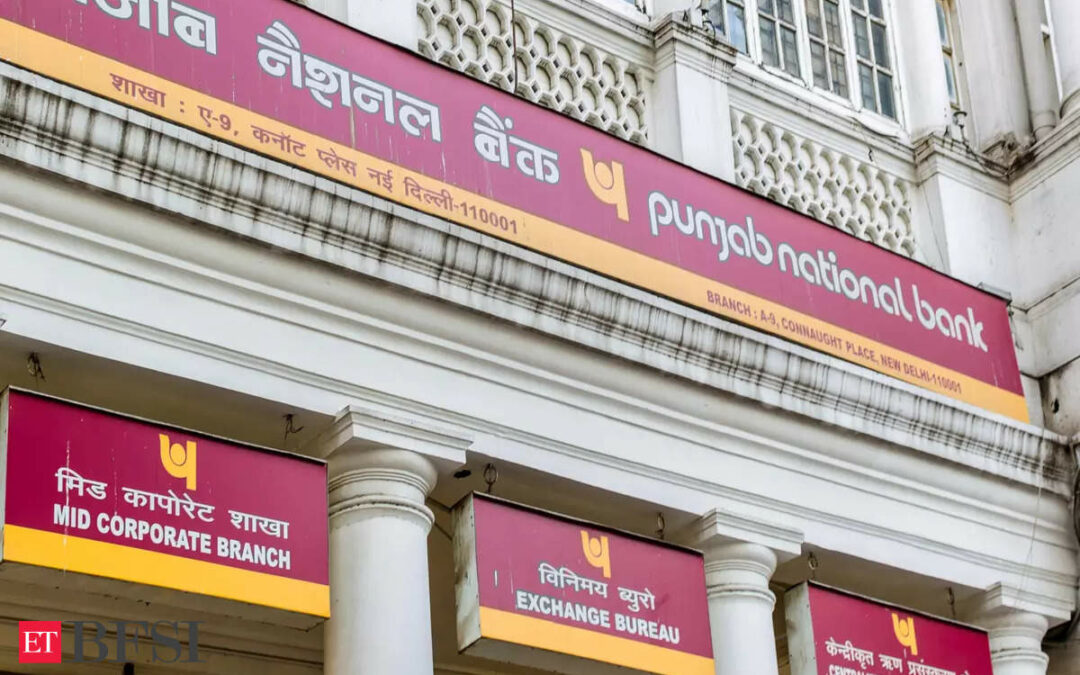Imagine going to an ATM to withdraw money from your bank account and seeing that a significant portion of the money that you saved in the bank account is withdrawn through unauthorised means. This is exactly what happened in 2013 with a constable of the Railway Protection Force (RPF). A total amount of Rs 80,000 was allegedly withdrawn through eight unauthorised transactions conducted on June 28, 29, and 30 of 2013. In a long legal fight spanning more than ten years, it was proved in the Delhi District Consumer Commission that Punjab National Bank (PNB) officials were at fault for this.
Why did PNB lose the case?
As per PNB, out of the aforesaid Rs 80,000, a sum of Rs 70,000 had already been reversed in the concerned bank account on July 16, 2013, September 2, 2013, October 28, 2013, and December 1, 2013. The Commission in its order stated that, “It is evident that an amount of Rs 10,000 has not been reversed by the Bank on the ground that it was a successful transaction but has failed to prove its contention with cogent evidence.”The Commission has observed during the 10-year long hearing that although PNB has stated in the affidavit dated September 15, 2017, that the transactions were done from MobiKwik app by the complainant but failed to produce any evidence to establish that the said MobiKwik app account belongs to the complainant.
According to Ankur Mahindro, Managing Partner, Kred Jure, a law firm, “The bank reversed seven transactions of the customer, thus, admitting its lapse/negligence/deficiency, prior to the initiation of the proceedings. Also, the bank had reversed seven transactions, but failed to reverse the eighth transaction, which was enough for the Ld. Commission to consider such acts or omissions to come under the purview of deficient service.”
Beginning of the long legal fight
The complainant filed a complaint in the police station and also intimated the bank officials via a letter. “A written representation to the Chief Executive officer, Punjab National Bank, Shastri Nagar, Delhi was given on 09/07/2013 about the above referred illegal withdrawal from the savings bank account. On the very same date, a written complaint was filed to the S.H.O., Sarai Rohilla Police Station, Delhi about the said illegal withdrawal from his account,” says the commission’s order dated February 15, 2024.
After the complainant notified PNB via the letter, he got a refund of Rs 30,000 in his bank account, however, PNB did not reply to the letter sent by the complainant. It has further been stated that the complainant again went to the concerned branch of Punjab National Bank and asked about the remaining balance of Rs 50,000. “The concerned bank officials did not give any satisfactory reply and tried to dilly dallying the issue,” said the complainant during one of the case hearings.
PNB alleged that the complainant violated Criminal Procedure Code
During the trial, lawyers representing PNB said that “The Complainant is liable to be prosecuted under Section 340 of the Criminal Procedure Code, 1973 for filing false Affidavit in the above-mentioned case.”
As per PNB’s lawyers, the complainant made false representations by stating that he came to know about his account balance only when he went to the ATM for cash withdrawal.
“As per the records maintained, “SMS Alert” service has been subscribed and activated by the Complainant on Mobile No…., which exists till date. Even during the period 28.06.2013 to 30.06.2013, when the alleged 8 transactions took place, the ‘SMS Alert service was active’ on the same mobile number and the SMS alerts were sent on the same mobile number to the Complainant as the transactions were above Rs 5,000. Meaning thereby, the Complainant was always aware about the alleged 8 transactions which took place in the account in question with his consent, therefore he never complained of the same to the Bank,” said PNB’s lawyers before the Commission.
Further, the Lawyers representing PNB argued that as per the complainant, he was always in the possession of his ATM-cum-debit card issued by the bank and hence, any transaction could not happen without his knowledge.
The bank alleged that the eight unauthorised transactions occurred through a point-of-sale purchase (POSP) mechanism. “POSP transactions cannot be completed without using the confidential password of the said ATM cum Debit Card, which was/is also in the power and custody of the Complainant,” said PNB before the Commission.
Commission orders PNB to pay money to the customer
The Commission ruled in the favour of the bank customer. “We feel appropriate to direct the OPs (Chief Manager, PNB Shastri Nagar Branch and Chief Manager, PNB ATM Cell) to pay Rs 10000, jointly and severally, to the complainant within thirty days from the date of receipt of this order, with interest at the rate of 9% p.a. from 30-06-2013 (date of eighth fraudulent transaction) till the date of the payment. Besides, the OPs are also directed to pay Rs 25,000 as compensation to the Complainant for the mental pain, agony and harassment, said the Commission in its order.
What should you do if this kind of fraud happens to you?
The Reserve Bank of India in a notification titled ‘Customer Protection – Limiting Liability of Customers in Unauthorised Electronic Banking Transactions’ has laid out certain rules regarding what can be done in such fraud situations. Experts say that if this type of fraud has happened with you, immediately notify the concerned bank and police authorities.
According to Gauri Subramanium, an advocate practising in the Supreme Court, “It is imperative that customers notify their bank of any unauthorised electronic banking transaction at the earliest after the occurrence of such transaction. Time is of the essence in these matters and customers can save themselves a lot of vexatious interaction by reporting an instance of fraud as quickly as possible.”
What does the law say about such frauds?
According to Manmeet Kaur, Partner, Karanjawala & Co, a law firm, “In terms of the Notification bearing No. RBI/2017-18/15 DBR.No.Leg.BC.78/09.07.005/2017-18 issued by Reserve Bank of India on 06.07.2017 the burden of proving customer liability in case of Unauthorised Electronic Banking Transactions shall lie on the Bank. However, the Bank Regulation Act, 1949 is silent on the said issue.”
Are banks liable to refund you the amount lost in fraud?
According to Subramanium, if a customer informs the bank within a stipulated amount of time (3 days) of financial fraud, it is the bank’s duty to prove that the customer has not been a victim of fraud. If the incident is reported within 3-7 days, the bank refunds the transaction amount or the maximum liability amount, whichever is lower. “If reported after 7 days, the refund process depends entirely on the bank’s internal policy,” she says.
“The timeline for reversing the fraudulent transaction has been stipulated as 10 working days, within which the bank has to credit the amount involved in the unauthorised electronic transaction,” says Mahindro.
Here’s a table showing what is the maximum liability amount:
Source: RBI website as of April 8, 2024
Experts, however, say that specifically for Aadhaar-enabled Payment System (AePS) frauds, the rules are slightly different. Subramanium says that the issuing bank must notify within five days when a customer registers a complaint along with an investigation report. “NPCI will then give the acquirer bank 10 days to make their submission where they will have to contend that the liability of fraud is not at their end. If the acquirer is unable to do so, the new guidelines mandate the bank to reimburse the customer within three days,” Subramanium says.









